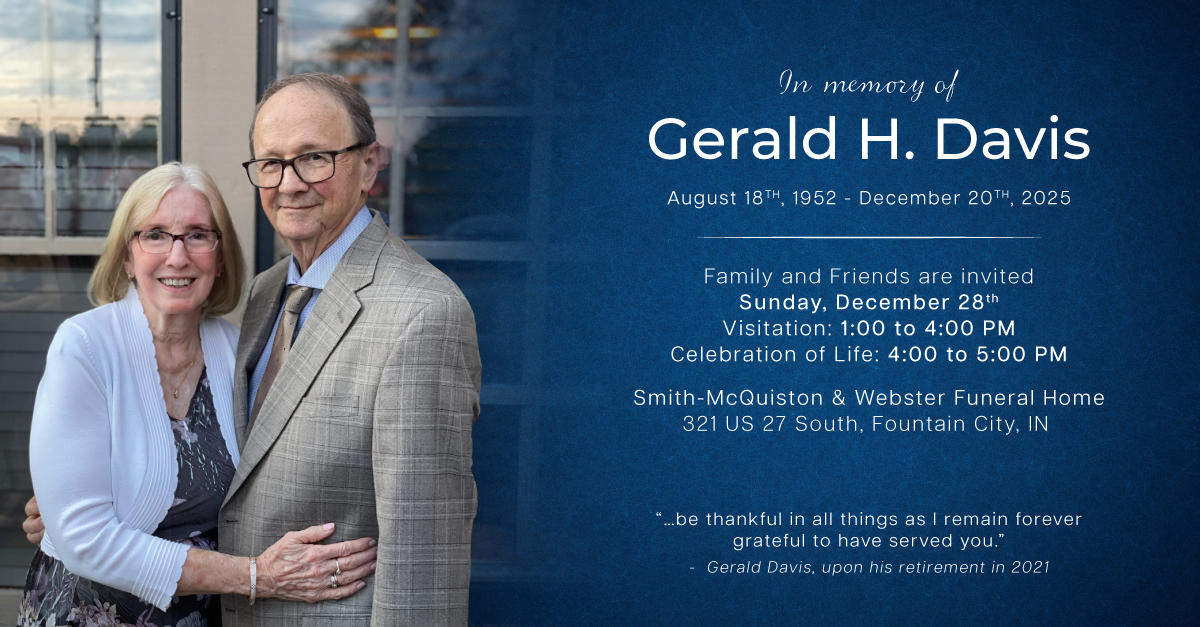In Many Remembrances, Loved Ones Dance Around The Word Death
 Death is hard to find in death notices.
Death is hard to find in death notices.
This is the time of year ? January and February ? when death rates are generally highest, according to the National Vital Statistics System.
Newspapers tend to run more paid death notices at this time of year, too.
If you read those notices carefully, however, you’ll find many people in them didn’t exactly die.
Most of them “passed away.”
Some “entered into rest.” Others “left the world in God’s hands.”
In a few cases, there isn’t even a verb, only a date and location to indicate the death.
“Death is hard to deal with,” said University of California, Berkeley, linguist Geoffrey Nunberg, explaining why people avoid the four-letter word that starts with “d” ? died.
“This is one reality that’s hard to face head-on,” he said. “It happens in the Bible; it happened in Homer.”
Take Genesis: “Abraham gave up the ghost … and was gathered unto his people.”
It happens in the newspaper, too. A lot.
Bill Gaylord is a regular reader of The Sacramento Bee’s “Remembrances.” That’s because of his age, which he described as “beyond four score.”
Gaylord joked, as George Burns once did, that he scans the notices and, if he isn’t in there, he shaves.
That’s how he noticed the variety of phrases.
“Over the years, I have realized that a fair number of people composing death notices for their loved ones avoid the simple statements of fact,” he said.
He started collecting phrases in The Bee’s paid death notices. They are submitted by survivors or funeral homes, as opposed to news obituaries, which are written by reporters.
In a few short months, Gaylord came up with more than 150 different ways to say a loved one died, fewer than 10 of which used the word “died.”
Among his more elaborate finds:
“At peace and sailing into the sunset.”
“Arrived on his last flight ? as he called this final journey.”v
“Left us to become an angel in heaven.”
“Slipped away quietly.”
And … “Went on to be with her well-known master, Jesus, where her husband of 57 years was waiting for her arrival. As he took her by the hand and led her up those golden stairs and through those pearly gates he might have said, ‘What took you so long?”‘
The newspaper representatives who take the ads say they generally use “passed away.” The fancier phrases come from family members, not funeral homes.
When Alvin Joseph Broussard died from cancer in May, his family chose to say he “moved further north to live with his Heavenly father.”
“We believe he is alive and well, just different,” said his son, Joel Broussard.
By “north,” they meant heaven, he said.
Broussard’s family also said he was “fully restored.”
They believe, Joel Broussard said, that death restores the person to his perfect self, not the body that had been damaged by time or disease.
This is not an approach taught in the funeral services program at American River College, according to coordinator Jeffrey W. Stephenson.
“People really need to hear the words ‘dead’ and ‘death,’ ” he said, explaining that it’s a needed part of the mourning process.
Students in classes on the psychology of death and dying hear that, and it’s also conveyed in Funeral Directing 1, during which instructors discuss death notices, Stephenson said.
He prefers to use “died” when preparing an obituary but will change it at the family’s request.
Bea Toney Bailey also prefers a more direct approach to death, which she discusses on “Bea on Bereavement,” her Sacramento-area cable show sponsored by the Interfaith Service Bureau.
“We’re a very young culture, and we’re very youth-oriented,” Bailey said.
Death makes us uncomfortable. “If we talk about death,” she said, “we might die.”
So people hedge.
“They say anything except, ‘Hey, they died.’ “
Beyond death notices, people have developed a lot of slang for death ? “kicked the bucket,” “popped their clogs,” “bit the dust.”
It isn’t just death, though. Other unpleasant and pleasant bodily functions ? sex, aging, vomiting, defecation ? also generate lots of euphemisms, Nunberg said.
Though she is a Christian, the daughter of a minister, Bailey doesn’t think those circumlocutions ? roundabout ways of avoiding the point ? are helpful to those who are grieving.
It means they are avoiding the reality, she said, but it also doesn’t help anyone to say, “Snap out of it! He’s gone!”
That only serves to alleviate the discomfort of the person who says it, not the mourner, Bailey said.
She also thinks people should prepare their obituaries ahead of time ? as a favor to their families.
“Mine’s already done,” she said.
Although she says she favors the direct approach, what she’s written is not blunt.
It opens with no equivocation: “If you’re reading this document, it means I’m no longer with you.”
It continues, however, with one of those indirect phrases: “I’ve gone on to be with the Lord.”
AVOIDING THE ‘D’ WORD
People use many phrases to express death in death notices. Here are a few more examples collected by Bill Gaylord:
? Absent from the body ? present with the Lord
? He was called home.
? As God swept His hand across the earth, He took his angel home.
? Fell asleep in the Lord
? Crossed over
? His spirit soars off to a new adventure.
? Joined his wife
? Left us suddenly
? Passed over to his reward
? Returned home
? Went to sleep peacefully
? Budded on earth, blossomed in heaven
? Taken away from us
Source: Seattle Times



